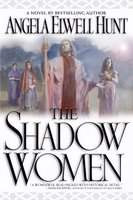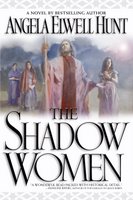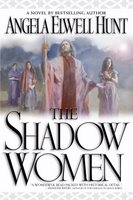
We buried Miriam at Kadesh, then for thirty days we mourned Moses’ sister and Israel’s first prophetess. Moses, Femi, and I missed her terribly, for our tent seemed empty without her. I had learned to think of her as a sister and mentor, for in her later years she showed me how to walk with God in quiet, unremarkable humility.
The people had no sooner completed the days of mourning than they began to complain about another water shortage. The children of the wilderness picked up the familiar refrain of their parents, demanding to know why Moses had brought them out of Egypt to a barren place, without seeds and figs, vines and pomegranates. . . . like fabled Egypt.
I closed my eyes as I heard their complaints. Why were these people so quick to yearn for the Black Land? Had they forgotten the pain and suffering of slavery?
Moses and Aaron met with Yhwh in the Tent of Appointment, then set out to obey his command in order to supply water for the thirsty people. Assembling the community near a large boulder outside the camp, Moses stepped onto a smaller rock. His expression clouded in anger as he lifted his staff. “Now hear, you rebels! Must we bring you water from this rock?”
While the community watched, Moses struck the boulder with his staff—and nothing happened. I caught my breath, for never had Yhwh failed my husband, then Moses struck the rock a second time. This time liquid flowed, an abundant stream that would provide more than enough water for the people and their livestock.
But one look at Moses’ face convinced me that something had gone very wrong. “Yhwh told me to speak to the rock,” he whispered as he stepped down and took my arm. “And in my anger, I struck it.”
I repressed the words of consolation that bubbled at my lips, for I could give no comfort in this situation. Yhwh had proved himself an exacting God, full of mercy, but unequivocal in his commands. Even for Moses, with whom Yhwh had a deep and abiding friendship, God would not tolerate disobedience.
Though Canaan opened before us and the forty years of wandering were drawing to an end, something of the old Midianite melancholy settled upon my husband in those last months.
It was a time of farewells. Soon after God gathered Miriam to her people, Yhwh told Moses that Aaron’s time had come. The next day Moses, Aaron, and Aaron’s son Eleazar climbed Mount Hor. At the summit, Moses removed Aaron’s priestly garments and placed them upon Eleazar, symbolically transferring the office of high priest from father to son. Supported by his brother, his son, and his God, Aaron died. Moses and Eleazar covered his body with stones, then returned to camp and announced Aaron’s death. We mourned him for thirty days.
The children of Israel endured other tests during that time—battles from anxious kings, temptations from the pagan women of Moab (related, I’m sorry to say, to my own people in Midian), and strife from within the camp. Moses handled these challenges as he had handled the previous trials—by consulting with Yhwh and obeying God’s commands.
As that final year ended, Yhwh told Moses that Joshua would succeed him as Israel’s leader. Joshua, however, would not speak to Yhwh as Moses had, friend-to-friend, but would instead seek Yhwh’s will before Eleazar the priest through the Urim and Tummim—two stones the priest would wear over his heart in order to know God’s will.
Moses grew restless in his final days, and neither Femi nor I could distract him from the heavy thoughts that pulled him into depths we could not plumb. In quiet afternoons I would often find him sitting outside the tent and staring toward cloud-covered Canaan, the home for which he had desperately yearned. Because I had spent my lifetime loving him, I could see that Moses had never felt at home in Egypt, Midian, or the wilderness . . . but soon his yearning would end.
He would not take his rest in Canaan, but in the presence of God.
One afternoon I lifted his hand and pressed it to my cheek. “Moses,” I whispered, for his sight and hearing had not diminished with the passing of time, “you have been a faithful servant. No one else could give Yhwh more than you have.”
“Yhwh will ask more of another.” There was a note of regret that went beyond nostalgia in his voice, as though he had missed a rare opportunity. “For Yhwh has told me that he will raise up for us another prophet from among this people. Yhwh will put his words in his mouth, and he will speak whatever Yhwh commands. And it shall be that any man who does not hearken to the words this prophet speaks, Yhwh himself will require a reckoning from him.”
“Is Joshua this prophet?”
Shaking his head, Moses’ gaze remained focused on some interior field of vision I could not see. “His time has not yet come. But when he comes, he will lead his flocks like a shepherd. He will do no wrong, and deceive none. Then like a lamb to the slaughter he will be led, and as a sheep is silent before the shearers, he will not open his mouth. From prison and trial they will lead him away to his death, and who among the people will realize he is dying for their sins?”
As tears gleamed beneath the thin veil over his face, Moses continued in an aching, husky voice I scarcely recognized. “But it is God’s good plan to crush him and fill him with grief. For when his life is made an offering for sin, he will have a multitude of children, many heirs. When he sees all that his anguish has accomplished, he will be satisfied. And Yhwh will honor him as one who is mighty and great, because he exposed himself to death and interceded for sinners.”
The silence of the hot afternoon flowed back into the space our conversation had made, filling in the gap as though Moses had never spoken. But he had, and I knew Yhwh had given him a glimpse of the future for our people and all mankind.
No more would we have to visit the Dwelling to offer the blood of animals to atone for our sins. The prophet who would come, the prophet like my Moses, would offer his perfect life instead.
Turning, I trailed my fingertips along the edge of the fabric covering Moses’ face. “May the daughter of a pagan priest look upon a man who has beheld the future?”
Beneath the veil, I saw the glimmer of a smile. “The wife of Moses may certainly look upon her husband . . . one last time.”
As I lifted the veil my tear-blurred eyes did not see the shining face of a man who speaks with God, but the calm visage of one who walks with God and knows his soul is secure.
I kissed my husband, then accompanied him to the base of Mount Nebo, the mountain that faces the land God had promised to the heirs of Abraham, Isaac, and Jacob. Something in the fixed look on Moses’ face drew the people after us—women came from the spring, men stopped training for battle, the shepherds left their flocks. Children interrupted their games and found their parents in the crowd assembling before Moses.
Once the people had settled, Moses reminded them of all the duties and instructions Yhwh had given. As the priests of Egypt had taught him through song, he taught the congregation of Israel to sing the lessons of the Lord. Then he challenged them with a choice—obedience and life or disobedience and destruction. The children of Israel responded with an enthusiastic cry in support of life and Yhwh.
“How blessed you are, O Israel!” he called from the foothills of the mountain. “Who else is like you, a people delivered by Yhwh? He is your helping shield, your majestic sword! Your enemies will come cringing before you, and you will trample on their backs!”
Moses’ voice simmered with barely checked passion. “So Israel will dwell in security, prosperous Jacob in safety, in a land of grain and wine where the heavens drop down dew.”
A jubilant cry echoed back from the mountain as the young warriors’ blood surged in eager readiness. While a sea of young men waved their swords, their fathers, women, and children looked upon them with shining faces. In that moment, even the most skeptical of outsiders would have believed that this band of former slaves held the promise of a great nation.
“Indeed,” Moses added in a low voice only Joshua and I could hear. “How blessed you are!”
Did he wish in that moment to be young again? Did he regret the frustrated, angry act that had resulted in his banishment from the land of promise? I do not know. I only know that Moses trusted Yhwh as a man trusts his best friend, and he was ready to follow the will of God.
I watched silently, pain squeezing my heart, as Moses and Joshua began to climb the mountain. Femi and Elisheba stood with me, supporting my arms as Aaron and Hur had once supported Moses’.
Later, Joshua told me that he and Moses said their farewells at a midpoint, then Moses left him to climb alone to the summit. Years later I heard a priest theorize that in Moses’ final moment, God bestowed a single tender kiss upon his lips, gently drawing out his vibrant soul.
I think Moses simply sat down and waited for Yhwh to honor his final promise. I also think the man who had yearned to see God’s glory was finally granted the opportunity to behold the One who first sought him in a burning thornbush. In that moment, Moses’ yearnings were fulfilled.
We mourned Moses for thirty days, then advanced to take Canaan. After a series of battles, Femi and I entered the Promised Land with the children of Israel and settled with my sons and their families in the area allotted to the tribe of Judah. My brother, Hobab, had taken a wife from that tribe, so I looked forward to spending many days with my grandchildren, nieces, and nephews.
From time to time, whenever a hot wind blew from the south and carried in it the faint sting of sand, I sat in my flowering garden and smiled at the memory of how I was convinced Moses was suffering from sunstroke when he told me about meeting Yhwh at Sinai.
Would the prophet yet to come meet with the same sort of resistance? I, who should have been my husband’s strongest ally, had been among the last to recognize the holy call upon his life. Likewise, the future prophet might face resistance from family and friends.
I had resisted the Israelites . . . but now I could not imagine dwelling with any other people or serving any god but Yhwh. I lived with skepticism for many years, yet when I tested the God of Abraham, I found him to be everything his name meant: merciful, long-suffering, faithful, holy, and just.
Yhwh is not benign, but a benign god never goads us to our knees or sends us free to conquer our enemies. A benign god never leads us onto holy ground . . . and now I cannot imagine living anywhere else.
























